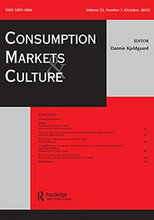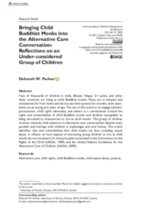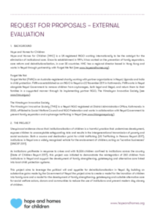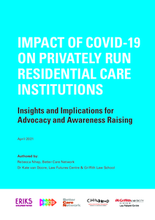This country page features an interactive, icon-based data dashboard providing a national-level overview of the status of children’s care and care reform efforts (a “Country Care Snapshot”), along with a list of resources and organizations in the country.
demographic_data
childrens_living_arrangement
children_living_without_bio
adoption
social_work_force
key_stakeholders
Key Stakeholders
Add New DataOther Relevant Reforms
Add New Datadrivers_of_institutionalisation
Drivers of Institutionaliziation
Add New Datakey_research_and_information
Key Data Sources
Add New DataAct Relating to Children 2018 - Nepal
Trafficking in Persons Report June 2018
Country Care Review: Nepal
Acknowledgements
Data for this country care snapshot was contributed by Forget Me Not and UNICEF Nepal.
Displaying 11 - 20 of 140
This paper examines the understanding of poverty emerging in voluntourists’ accounts of their first-hand experiences of poverty alleviation. Based on the ethnography of an orphanage in Nepal, the authors show that despite voluntourists’ good intentions and even (self-)criticism of the volunteer tourism approach to poverty relief, their accounts tend to consolidate rather regressive ideas about poverty.
At a parliament meeting on June 15, Nepal’s Law and Justice Minister Govinda Bandi announced that the government is preparing to lower the legal age of marriage.
This webinar presents the findings from the stage one analysis of the legal, policy and procedural frameworks of orphanage trafficking in Cambodia, Uganda, and Nepal. It also featured presentations on the situation of orphanage trafficking from in-country investigators and experts.
Orphanage trafficking involves the recruitment and/or transfer of children to residential care institutions for a purpose of exploitation and profit. It typically takes place in lower- and middle-income countries where child protection services systems are highly privatized, under-regulated, and primarily funded by overseas sources. Orphanage trafficking crimes are poorly understood, often go undetected and are rarely prosecuted- even in countries where its occurrence has been well documented.
यस अध्ययनले सातवटा केन्द्रित देशहरूमा २१ अर्ध-संरचित अन्तर्वार्ताहरू समावेश गरी गुणस्तरीय अनुसन्धान अध्ययन सञ्चालन गरेर निजी रूपमा सञ्चालित र वित्त पोषित आवासीय हेरचाह संस्थाहरूको सानो संख्यामा COVID-19 को प्रभावको अन्वेषण गर्दछ।
This article identifies risks and vulnerabilities that child monks can face, including sexual abuse. It reflects on how aspects of entrusting young children to live as child monks do not necessarily fit with principles articulated in the Convention on the Rights of the Child (UNGA, 1989) and the United Nations Guidelines for the Alternative Care of Children (UNGA, 2009).
This report examines the rise in child labor and poverty during the Covid-19 pandemic in three countries: Ghana, Nepal, and Uganda, the impact on children’s rights, and government responses.
Hope and Homes for Children is looking for an independent evaluator or team with a strong record in conducting evaluations as well as direct programme interventions to conduct an evaluation of a pilot project initiated to support catalytic change in care reform in Nepal.
The WHO South-East Asia Regional Office in collaboration with UNICEF organized a 3-day virtual meeting from 27 to 29 April, 2021.
This study explores the effect of COVID-19 on a small number of privately run and funded residential care institutions by conducting a qualitative research study comprising 21 semi-structured interviews across seven focus countries.






